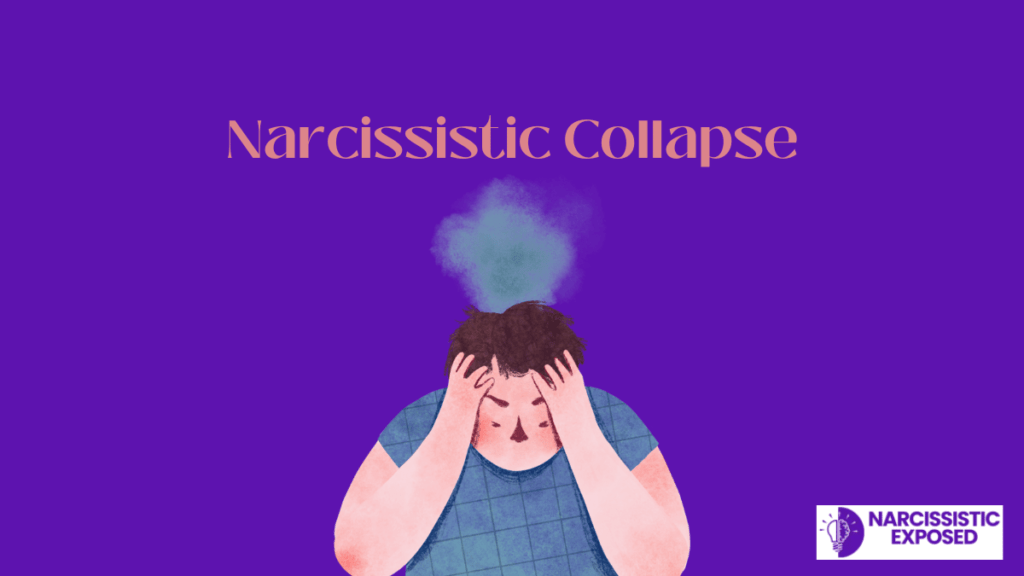
Narcissistic Personality Disorder (NPD) is a term that often surfaces in popular culture, sometimes used loosely to describe individuals who appear excessively vain or self-absorbed. However, in the realm of psychology, NPD holds a much more significant and complex meaning. It’s a mental health condition characterized by deep-seated patterns of grandiosity, a constant need for admiration, and a striking lack of empathy toward others.
In this comprehensive guide, we aim to unpack the layers of Narcissistic Personality Disorder, offering insights into its clinical definition, characteristic traits, underlying causes, and its profound impact on personal and professional relationships. Our exploration will extend beyond the clinical aspects, delving into the challenges and treatment strategies and concluding with a unique perspective on dealing with NPD.
Understanding NPD is crucial not just for mental health professionals but for anyone who encounters these traits in daily life. This condition can significantly impact interpersonal dynamics, making it essential to approach with knowledge, empathy, and awareness.
Table of contents
- 1. Clinical Definition and Diagnosis of NPD
- 2. Characteristics and Traits of NPD
- 3. Causes and Contributing Factors of NPD
- 4. Impact on Personal and Professional Relationships
- 5. Treatment and Management of NPD
- 6. Navigating the World of NPD with Understanding and Compassion
- 7. FAQ on Narcissistic Personality Disorder
- 8. Conclusion
1. Clinical Definition and Diagnosis of NPD
Narcissistic Personality Disorder (NPD) is clinically defined in the Diagnostic and Statistical Manual of Mental Disorders, Fifth Edition (DSM-5), which is the primary resource used by mental health professionals for diagnosing mental health conditions. According to DSM-5, NPD is identified by a pattern of grandiosity, a constant need for admiration, and a lack of empathy, beginning by early adulthood and present in various contexts.
To be diagnosed with NPD, an individual must meet at least five of the following criteria:
- Grandiose sense of self-importance: Exaggerating achievements and talents, expecting to be recognized as superior without commensurate achievements.
- Preoccupied with fantasies of unlimited success, power, brilliance, beauty, or ideal love.
- Belief of being special and unique: The individual believes they can only be understood by or should associate with, other special or high-status people (or institutions).
- Need for excessive admiration.
- Sense of entitlement: Unreasonable expectations of especially favorable treatment or automatic compliance with their expectations.
- Interpersonally exploitative behavior: Taking advantage of others to achieve their ends.
- Lack of empathy: Unwillingness to recognize or identify with the feelings and needs of others.
- Envy of others or belief that others are envious of them.
- Arrogant, haughty behaviors or attitudes.
It’s important to note that diagnosing NPD is complex and can only be done by a qualified mental health professional. The diagnosis is not based on a single event but on a persistent and pervasive pattern of behavior.
2. Characteristics and Traits of NPD
Individuals with Narcissistic Personality Disorder (NPD) exhibit a range of characteristics and behaviors that are distinct and consistent. Understanding these traits is crucial for recognizing NPD in oneself or others.
- Grandiosity and Fantasies of Success: People with NPD often have an exaggerated sense of self-importance. They may fantasize about immense success, power, or attractiveness and believe they are unique and can only be understood by other special people.
- Need for Admiration: A hallmark of NPD is the constant need for admiration and validation. Individuals with this disorder seek excessive attention and affirmation.
- Sense of Entitlement: They often expect special treatment and believe they are entitled to it without reciprocation.
- Manipulative or Exploitative Relationships: Narcissists typically use others to their advantage, seeing relationships as a means to an end.
- Lack of Empathy: A significant and defining trait is a lack of empathy. Individuals with NPD often have difficulty recognizing or sympathizing with the emotions and needs of others.
- Envy and Belief in Others’ Envy: They may envy others and believe others are equally envious of them.
- Arrogance: Narcissists often display snobbish, disdainful, or patronizing attitudes.
It is crucial to note that while these traits can be disruptive and harmful, they are part of a mental health disorder. Understanding this can foster a more empathetic approach to dealing with individuals who have NPD.
3. Causes and Contributing Factors of NPD
The exact causes of Narcissistic Personality Disorder (NPD) are not fully understood, but a combination of factors contributes to its development. These factors are typically a complex blend of biological, psychological, and environmental influences.
- Genetic Factors: There may be a genetic predisposition to NPD. Studies suggest that personality disorders could be heritable, although no specific genes have been definitively linked to NPD.
- Brain Structure and Function: Research indicates that differences in brain structure and function, particularly in areas related to empathy, emotion regulation, and judgment, may contribute to NPD traits.
- Psychological Factors: Early childhood experiences play a significant role in the development of NPD. This can include excessive pampering or, conversely, excessive criticism from parents or caregivers during childhood.
- Environment and Upbringing: Unpredictable or negligent care, emotional abuse, and an overemphasis on external success or beauty can contribute to the development of narcissistic traits. Growing up in an environment that excessively values superficiality or achievement can also be a factor.
- Cultural Influences: Societal and cultural factors might contribute to the development of NPD. Societies that value individualism and self-promotion over community and cooperation may inadvertently foster narcissistic traits.
It is important to note that these factors do not guarantee the development of NPD in an individual; they increase the risk. The interplay of these factors is complex and unique to each individual.
4. Impact on Personal and Professional Relationships
The presence of Narcissistic Personality Disorder (NPD) in an individual can significantly affect their personal and professional relationships. Understanding these impacts is crucial for both those with NPD and those who interact with them.
- Challenges in Personal Relationships: Relationships with individuals who have NPD can be strained due to their need for admiration and lack of empathy. Partners, children, or friends may feel neglected or unvalued, as the individual with NPD may not reciprocate affection or consider their needs.
- Manipulative Behaviors: Narcissists often manipulate or exploit their close relationships to serve their interests, leading to trust issues and emotional distress for their partners or family members.
- Conflict and Instability: The arrogance and entitlement characteristic of NPD can lead to frequent conflicts and instability in relationships. Their sensitivity to criticism and tendency to belittle others can create a hostile and tense environment.
- Professional Relationships: In the workplace, individuals with NPD may exhibit behaviors that can be both beneficial and detrimental. They may be charismatic and ambitious, but their entitlement and lack of cooperation can hinder teamwork and create a toxic work environment.
- Impact on the Mental Health of Others: Continuous interaction with someone with NPD can affect the mental health of those around them, potentially leading to issues like anxiety, depression, or low self-esteem.
These impacts underscore the importance of awareness and appropriate strategies to manage relationships involving individuals with NPD effectively.
5. Treatment and Management of NPD
Treating and managing Narcissistic Personality Disorder (NPD) can be challenging, both for the individual and mental health professionals. However, some strategies and treatments can help manage the symptoms and improve the quality of life.
- Psychotherapy: This is the primary treatment for NPD. Cognitive-behavioral therapy (CBT) can help individuals understand and change harmful thought patterns and behaviors. Therapy can also focus on improving interpersonal relationships, empathy, and self-esteem.
- Medication: While there are no medications specifically for NPD, certain medications may help with co-occurring conditions like depression or anxiety.
- Long-term Therapy: NPD is a chronic disorder, and long-term therapy is often necessary. This requires commitment and patience, as changes in deeply ingrained personality traits take time.
- Group Therapy: Participating in group therapy can provide insights into interpersonal relationships and behaviors, although care must be taken as group settings can sometimes reinforce narcissistic behaviors.
- Family Therapy: Involving family members in therapy can help improve family dynamics affected by NPD.
- Self-Help Strategies: Encouraging self-awareness, empathy, and understanding the effects of one’s behavior on others can be beneficial. This often involves recognizing triggers and finding healthier ways to cope with emotions and stress.
Individuals with NPD need to receive treatment from mental health professionals experienced in treating personality disorders. Treatment effectiveness varies, and a tailored approach is often necessary.
6. Navigating the World of NPD with Understanding and Compassion
Dealing with Narcissistic Personality Disorder (NPD), whether in oneself or others, can be a challenging journey. From a personal perspective, it’s essential to approach this complex disorder with a blend of understanding and compassion. While the traits associated with NPD can be complex and sometimes damaging, recognizing that they stem from a mental health condition is crucial.
Understanding Beyond the Disorder: Individuals with NPD often struggle with deep-seated insecurities and fears despite their outward appearance of confidence and boasting. Understanding this can help approach them with more empathy rather than judgment.
The Role of Compassion: Compassion does not mean tolerating harmful behavior but recognizing its human struggles. For those dealing with NPD in themselves, compassion can be a key to self-acceptance and motivation for change.
Balancing Empathy with Boundaries: It’s crucial to balance empathy for individuals with NPD with firm boundaries to protect one’s well-being. This is especially vital in personal relationships affected by NPD traits.
A Holistic View: NPD, like many mental health issues, is a spectrum. Viewing it holistically and considering all contributing biological, psychological, and environmental factors can lead to a more comprehensive understanding and effective management.
This perspective encourages a balanced approach to NPD, promoting support and treatment for those affected while also acknowledging the challenges faced by those around them.
7. FAQ on Narcissistic Personality Disorder
- What is Narcissistic Personality Disorder (NPD)?
- NPD is a mental condition characterized by a long-term pattern of exaggerated self-importance, need for excessive attention, and lack of empathy for others.
- How is NPD diagnosed?
- NPD is diagnosed by mental health professionals based on specific criteria, including persistent grandiosity, a need for admiration, and a lack of empathy, as outlined in the DSM-5.
- Can people with NPD change?
- Change in NPD can be challenging but is possible with long-term therapy and personal effort. The level of change can vary significantly from person to person.
- How does NPD affect relationships?
- NPD can severely strain relationships. Individuals with NPD may be perceived as selfish, unempathetic, and manipulative, leading to conflicts and emotional distress.
- What are common misconceptions about NPD?
- Common misconceptions include the belief that people with NPD are just overly confident or that they choose to be self-centered, ignoring the complexity of the disorder.
- Is there a cure for NPD?
- There is no cure for NPD, but treatment options like psychotherapy can help manage symptoms and improve relationships and functioning.
Please let me know which section of the article you would like to start with or if there’s anything else you would like to add to the outline or FAQ.
8. Conclusion
Narcissistic Personality Disorder (NPD) presents unique challenges and complexities, both for those who have the disorder and for those around them. This comprehensive exploration of NPD has aimed to provide a deeper understanding of its clinical aspects, characteristics, causes, and impacts. We’ve discussed the available treatments and management strategies and offered personal insight into navigating the world of NPD with understanding and compassion.
Understanding NPD is critical in today’s world, where the traits associated with the disorder can often be misconstrued or oversimplified. It’s a condition that requires a nuanced approach, balancing empathy with the need for healthy boundaries. For those living with NPD, the journey towards self-awareness and change can be challenging but rewarding. For those interacting with individuals with NPD, knowledge and understanding can be powerful tools in managing these relationships.
Ultimately, this guide serves as a resource for anyone seeking to understand more about NPD – to demystify the disorder, to offer support for those dealing with its challenges, and to encourage a compassionate and informed approach to a complex condition.





